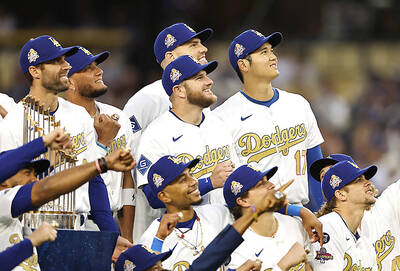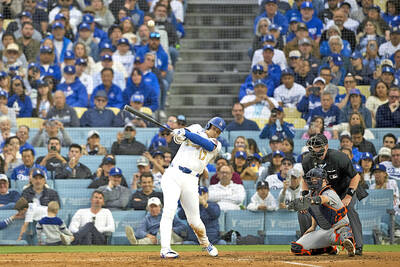Reporters tried mightily to get Kerry Collins and Ray Lewis to take a walk down memory lane to January 2001 and revisit Super Bowl XXXV.
But Collins, then the Giants’ quarterback, and Lewis, the Ravens’ ferocious middle linebacker, were reluctant to take that walk.
“They were phenomenal,” Collins said this week, as he prepared to face Lewis’ Ravens again, this time as Tennessee’s quarterback, in the second round of the AFC playoffs last Saturday. “That defense I think will be the best I’ve ever played.”
Although playing in a Super Bowl is the highlight of every player’s career, Collins’ appearance came during a grueling personal struggle. He was dealing with life as a recovering alcoholic, having bounced from the Carolina Panthers to the New Orleans Saints before finding a temporary home with the Giants.
Lewis’ struggle had more to do with youth, stardom and celebrity. In January 2000, he and two friends were charged with murder and aggravated assault in the aftermath of a post-Super Bowl party that left two men dead. Charges against Lewis were dropped, although the spectacle of a handcuffed Lewis in orange prison overalls left a lasting impression.
The Ravens dominated the Giants, 34-7. Collins had a miserable game and Lewis was voted the most valuable player. The victory established Lewis as the defensive star of the new century and the loss cast Collins, however unfairly, as a fragile quarterback who would wilt under constant pounding.
THE PRIDE
But Lewis would pay a price for several seasons to come. He was not invited to Disney World — a tradition for the Super Bowl’s MVP. His image was not on the Wheaties box that celebrated the Ravens’ Super Bowl championship.
Lewis and Collins are a study in how to rebuild an image and a career in an all-news-all-the-time culture that never forgets but will forgive, given the proper circumstances.
Lewis and Collins have rebuilt their careers and their reputations in the intervening eight years.
Asked this week about that game, Lewis didn’t want to go back to 2001.
Asked to compare the Ravens’ current defense with the 2000 defense, he said: “The only thing I can react about is what we’re trying to go do this week. Like I said, for me to go back there, that’s too far. That’s too far.”
What he said about the Ravens then and now could also apply to Lewis himself. He was 25 and sitting on top of the world when the Ravens won the Super Bowl. Lewis will turn 34 in May, and he has matured in many ways. Although Lewis may have lost a step since 2000, he is probably the smartest player on the Ravens’ defense.
“We’ve got a totally different mind-set,” Lewis said. “We’re a totally different team than we were in 2000. Our job is to stay focused on the now.”
Lewis and Collins have remade themselves. Collins has resurrected a career that seemed all but over after he was cut from the Giants and then from the awful Oakland Raiders. This season, Collins took over for the injured Vince Young and played his best football since his Giants days.
NEW IMAGE
Lewis, while remaining a consistent force on the field, has reconstructed his off-field image. He has walked a straight and narrow path and used his Ray Lewis 52 Foundation as a vehicle to do everything from sponsoring annual Thanksgiving food drives, to providing economic assistance to disadvantaged children, to adopting families in the Baltimore area during the holidays.
“Probably one of the biggest differences I see in Ray is his willingness to consider,” Harry Swayne said on Wednesday.
Swayne was the Ravens’ starting right tackle in Super Bowl XXXV. He was Lewis’s teammate for two seasons. Swayne, a 15-year retired after the 2001 season. He served as the Chicago Bears’ chaplain for four seasons and joined the Ravens this season as the assistant director of player programs.
The Ray Lewis he saw last year and the Kerry Collins he will see today have practically been reborn.
“When you’re a young guy, three, four years in the league, and can do anything physically, you really don’t see a value in listening or considering anything somebody has said, even those who came before you,” Swayne said. “Then you go through something and you realize that life has just knocked me for a loop and here I am down on a knee and everybody’s kicking. Let me find out who I am and where I want to go.”
Michael Vick, the former Atlanta Falcons quarterback, will soon face the task of rebuilding a career and an image. Vick was one of the NFL’s biggest stars before he was convicted in 2007 for his participation in a dogfighting ring. Vick could be released by July and could be given an opportunity to play again.
Nothing can completely erase the past — not victories, not great athletic performances.
“Yesterday is gone,” Lewis told reporters on Tuesday. “Let’s leave it there.”
But Collins and Lewis show there is a road to redemption.
For them, the road passes through Nashville.

Shohei Ohtani and Clayton Kershaw on Friday joined their Los Angeles Dodgers teammates in sticking their fists out to show off their glittering World Series rings at a ceremony. “There’s just a lot of excitement, probably more than I can ever recall with the Dodger fan base and our players,” manager Dave Roberts said before Los Angeles rallied to beat the Detroit Tigers 8-5 in 10 innings. “What a way to cap off the first two days of celebrations,” Roberts said afterward. “By far the best opening week I’ve ever experienced. I just couldn’t have scripted it any better.” A choir in the

The famously raucous Hong Kong Sevens are to start today in a big test for a shiny new stadium at the heart of a major US$3.85 billion sports park in the territory. Officials are keeping their fingers crossed that the premier event in Hong Kong’s sporting and social calendar goes off without a hitch at the 50,000-seat Kai Tak Stadium. They hope to entice major European soccer teams to visit in the next few months, with reports in December last year saying that Liverpool were in talks about a pre-season tour. Coldplay are to perform there next month, all part of Hong Kong’s

After fleeing Sudan when civil war erupted, Al-Hilal captain Mohamed Abdelrahman and his teammates have defied the odds to reach the CAF Champions League quarter-finals. They are today to face title-holders Al-Ahly of Egypt in Cairo, with the return match in the Mauritanian capital, Nouakchott, on Tuesday next week. Al-Hilal and biggest domestic rivals Al-Merrikh relocated to Mauritania after a power struggle broke out in April 2023 between the Sudanese army and a paramilitary force. The civil war has claimed tens of thousands of lives and displaced more than 12 million people, according to the UN. The Democratic Republic of the Congo-born Al-Hilal

Shohei Ohtani, Teoscar Hernandez and Tommy Edman on Thursday smashed home runs to give the reigning World Series champions the Los Angeles Dodgers a 5-4 victory over Detroit on the MLB’s opening day in the US. The Dodgers, who won two season-opening games in Tokyo last week, raised their championship banner on a day when 28 clubs launched the season in the US. Dodgers manager Dave Roberts shuffled his batting lineup with all four leadoff hitters finally healthy as Ohtani was followed by Mookie Betts, then Hernandez and Freddie Freeman in the cleanup spot, switching places with Hernandez. “There’s a Teoscar tax to